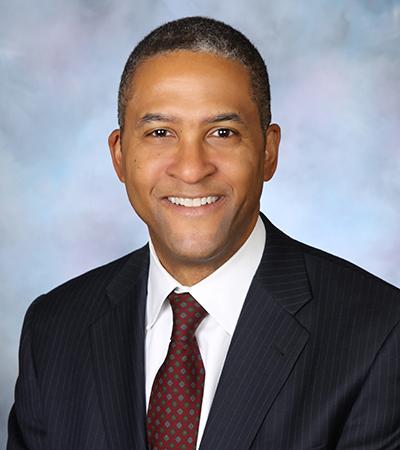
Honorable Raymond J. Lohier, Jr. to deliver Cline Williams Jurist-In-Residence Presentations
24 Oct 2018
The Honorable Raymond J. Lohier, Jr. of the United States Court of Appeals for the Second Circuit will deliver presentations to the College of Law community at noon on Oct. 29, and at noon on Oct 30. Judge Lohier’s presentations are part of the Cline Williams Jurist-In-Residence Program. Both programs will be held in the Hamann Auditorium at the College of Law and are free and open to the public. Each program is approved for 1.0 hours of Nebraska CLE credit.
On Oct. 29, the Honorable Joseph Bataillon, a Senior United States District Judge of the United States District Court for the District of Nebraska, will join Judge Lohier for a discussion of the U.S. Courts, with special focus on Federal and U.S. Circuit Courts.
On Oct. 30, Judge Lohier and Professor Maggie Wittlin will present “The Roles of Judges and Lawyers in Doing Justice: A Conversation.” In this conversation, Judge Lohier will address the role of judges in ensuring adequate defense representation, as well as the role of prosecutors in protecting the integrity of the criminal justice system. Professor Wittlin served as a law clerk for Judge Lohier in 2012-13.
Judge Lohier was appointed to the United States Court of Appeals for the Second Circuit after being unanimously confirmed by the United States Senate in December 2010. Judge Lohier served as a law clerk for the Honorable Robert P. Patterson, Jr. of the United States District Court for the Southern District of New York and was associated with the law firm of Cleary, Gottlieb, Steen & Hamilton in New York. Following this work, Judge Lohier served as a Senior Trial Attorney with the Civil Rights Division of the United States Department of Justice, where he spearheaded employment discrimination-related litigation and worked on other civil rights matters.
Judge Lohier thereafter served as an Assistant United States Attorney in the Southern District of New York, where he served, among other roles, as Senior Counsel to the United States Attorney, Chief of the Securities and Commodities Fraud Task Force, and Chief of the Narcotics Unit. As Chief of the Securities and Commodities Fraud Task Force, Judge Lohier was responsible for overseeing the Bernard Madoff prosecutions, the investigation and prosecution of Marc Dreier, the Galleon and other hedge fund-related insider trading cases, as well as several other high-profile fraud cases. Judge Lohier is the current Chairperson of the Defender Services Committee of the Judicial Conference of the United States.
The Cline Williams Distinguished Lectureship began in 1972. Law firms Cline Williams and Nelson Harding were asked to sponsor the lectureships on an as-needed basis. In 1988, the Cline Williams Distinguished Lectureship was converted to a Jurist-in-Residence program. Past guests have included William Fletcher, United States Circuit Judge of the United States Court of Appeals for the Ninth Circuit; Donald P. Lay, United States Circuit Judge of the United States Court of Appeals for the Eighth Circuit; Shirley S. Abrahamson, Chief Justice of the Wisconsin Supreme Court; and most recently Judge David Ebel, Senior Judge of the United States Court of Appeals for the Tenth Circuit.
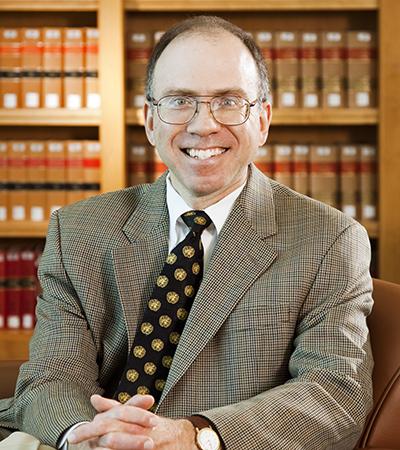
Lepard to Chair Panel at International Law Weekend
18 Oct 2018
Professor Brian Lepard will chair a panel at International Law Weekend at Fordham Law School in New York City on Saturday, October 20. The theme of the panel is “How Customary International Law Matters in Protecting Human Rights.”
Professor Lepard is the Harold W. Conroy Distinguished Professor of Law at the University of Nebraska College of Law and a recognized expert on international law. His most recent book is Reexamining Customary International Law, which he edited and to which he contributed several chapters. The book was published by Cambridge University Press in 2017.
The panel on October 20 will explore why and how customary international law matters in protecting human rights. In particular, it will empirically analyze the use of customary international law by national and international courts to safeguard human rights. It will critically examine recent judicial decisions involving attempts to hold business corporations accountable for violations of customary human rights law, including Jesner v. Arab Bank PLC, decided by the U.S. Supreme Court in April 2018, and Araya v. Nevsun Resources Ltd., decided by the British Columbia Court of Appeal in November 2017. The panel will also investigate whether negotiations for a Global Compact on Refugees and other global standards on refugees may be contributing to the development of norms of customary international law relevant to the protection of refugees. Finally, the panel will also look at the practical role that customary international law has played in defining and protecting the right to religious freedom.
Other panelists include Niels Petersen, Professor of Public Law, International Law, and European Union Law at the University of Münster; Alan Franklin, Managing Director of Global Business Risk Management and Faculty, Athabasca University and Diplo Foundation; Dana Schmalz, Visiting Scholar at the Zolberg Institute on Migration and Mobility at The New School; and Mark Janis, William F. Starr Professor of Law at the University of Connecticut.
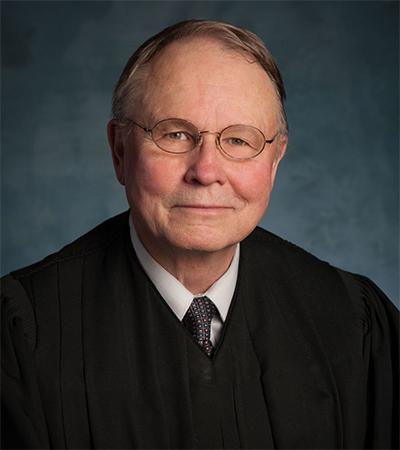
Wright, ’70, Recognized with George H. Turner Award
18 Oct 2018
Justice John F. Wright, ’70, has posthumously been awarded the George H. Turner Award. The Turner Award is presented to a member of the Nebraska State Bar Association who has demonstrated exemplary efforts in furthering public understanding of the legal system, the administration of justice and confidence in the legal profession. Justice Wright lead a life of service, both as a lawyer and as a Nebraska Supreme Court Justice. He was revered for his intelligence, humility, decisiveness, civility and leadership. The NSBA thanks him for his service to the courts, the profession and the citizens of Nebraska.
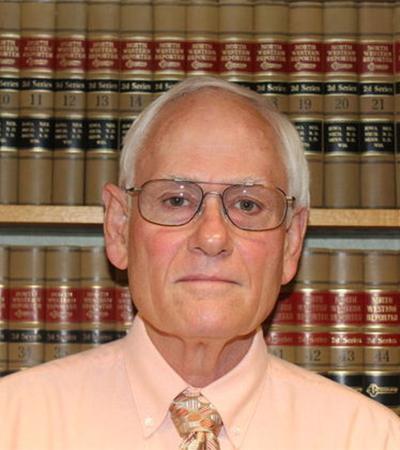
Mattoon, ’76, Elected 2020-2021 Nebraska State Bar Association President Elect
18 Oct 2018
At the Nebraska State Bar Association Annual Meeting, Steve Mattoon, ‘76 and Jill Robb Ackerman assumed their posts as President Elect and President-Elect Designate of the Nebraska State Bar Association.
Steve Mattoon, of Sidney, will succeed J. Scott Paul as President-Elect and will serve as NSBA President from October 2019 to October 2020.
Mattoon is a partner with Matzke, Mattoon, Martens & Strommen, L.L.C. His representation in the oil and gas industry includes Title Opinion examinations in more than 20 counties in western and southwestern Nebraska, both for drilling purposes and for division order purposes, and extensive practice before the Nebraska Oil and Gas Conservation Commission. His representation before the Nebraska Oil and Gas Conservation Commission includes Applications for pooling, unitization and secondary recovery operations. He is a frequent speaker regarding oil and gas law. Furthermore, he has practiced extensively in the areas of real estate, estate planning, probate, corporate and commercial development.
Mattoon has been actively involved in the Nebraska State Bar Association serving as Chairman of the House of Delegates in 2013. He has served two terms on the Executive Council from 2002 to 2008 and from 2012 to 2015, and was a member of the House of Delegates for over 20 years. Mattoon also previously served as Trustee to the Rocky Mountain Mineral Law Foundation and served as Secretary of the Natural Resources Section of the Nebraska State Bar Association.
Mattoon is a graduate of the University of Nebraska - Lincoln, graduating with a Bachelor of Arts and also a Juris Doctorate from the University of Nebraska College of Law. In law school he was selected to the Order of the Barristers and was the Junior Round Moot Court Supervisor. Steve and his wife Cathy have two daughters: Kendra Rignenberg, who is a partner with Dvorak Law Group, LLC, and Stephanie Mattoon, who is a partner with Baird Holm, LLP.
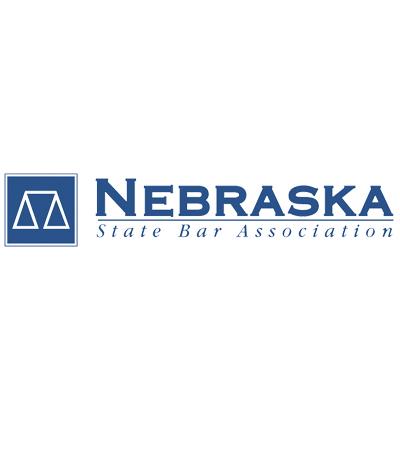
McCarthy,'75, Langan Mach, 95, and Sapp, '89, Assume NSBA Leadership Roles
18 Oct 2018
Mike McCarthy, ’75, took over as Nebraska State Bar Association House of Delegates Chair and Jane Langan Mach, ‘95, began her term on the NSBA Executive Council this week at the NSBA’s Annual Meeting in La Vista.
Mike is a partner in the North Platte law firm of McCarthy & Moore, LLP. He earned his undergraduate degree in 1972, and his law degree in 1975, both from the University of Nebraska-Lincoln. Immediately following his graduation he joined his father in the private practice of law in North Platte. Mike practices primarily in the areas of estate planning and probate, real estate, and corporate & business planning.
Mike is married to Janie McCarthy who is a retired speech and language teacher with North Platte Public Schools. Mike has four children and eight grandchildren. Mike has served on the North Platte Board of Education, and served as the Board’s President, the Great Plains Health Board of Directors, where he also served as the Board’s Chair, the Board of Directors of the North Platte Area Chamber of Commerce and Development Corporation, where he served as Chair, the Nebraska Commission on the Unauthorized Practice of Law, where he served as Chair from 2008 to 2012, the Nebraska State Bar Association House of Delegates, and he served as the Sixth District Representative on the Executive Council of the Nebraska State Bar Association, from 2013 to 2016.
Jane Langan Mach also began her term on the NSBA Executive Council representing the First Judicial District.
Langan Mach is a partner at Rembolt Ludtke LLP where she has been practicing since 1995. She focuses primarily on family law issues, particularly complex divorce, paternity, custody, child support, and adoption matters including both trial and appellate work. Jane is a Certified Parenting Act Mediator. She also works with the rehabilitation or liquidation of insurance companies. Langan Mach teaches Pretrial Litigation Skills and Family Law at the University of Nebraska College of Law and has been a regular speaker at the Family Law Section’s annual seminar.
Langan Mach is listed in Great Plains Super Lawyers and in Nebraska’s 10 Best in client satisfaction with the American Institute of Family Law Attorneys. She is active in the Nebraska State Bar Association. She has served: as Chair of the House of Delegate (2018); on the Ad Hoc Committee on Parenting Time (2013); Legislation Committee (2011-present); Budget and Planning (2011-2012); Annual Meeting Committee Chair (2002-2003); and was on the Executive Committee and Chair (2000-2001) of the Young Lawyers Section.
A lifelong Nebraskan, Jane lives in Lincoln with her husband Jeff and their five children.
Also becoming NSBA officers are the Hon. Tricia Freeman and Susan Sapp, ‘89. Judge Freeman of the Sarpy County Court took office as Chair-Elect. Susan Sapp with Cline Williams Wright Johnson and Oldfather, LLP in Lincoln took office as Chair-Elect Designate.
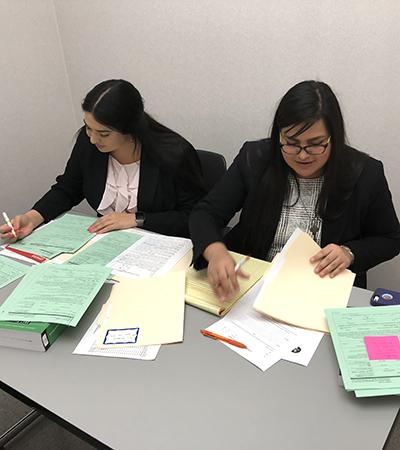
Immigration Clinic Students Participate in Attorney Of The Day Program
11 Oct 2018
To prepare for their appearances in the AOTD Program, students received training from ILC staff attorneys, all of whom are Nebraska Law alumni. The attorneys conducting the training were Mindy Rush Chipman, '07, Roxana Cortes Reyes, '16, and Joshua Snowden, '17.
Immigration Clinic students continue to represent individual clients in immigration cases, but are also participating in a number of projects this semester, including community outreach programs, limited scope counseling with clients who have immigration questions, and drafting an amicus brief in an appellate case before the Nebraska Court of Appeals that contains immigration issues. Other projects are planned for the balance of this semester and next semester.
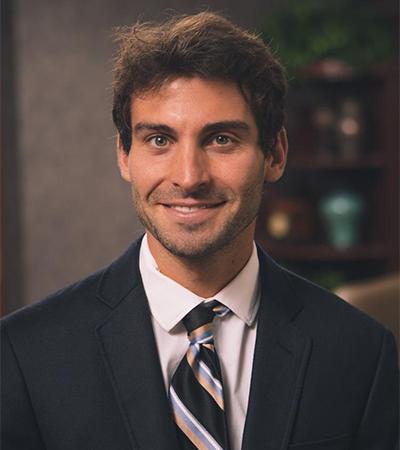
Kaplan, '18, Joins Perry, Guthery, Haase & Gessford
08 Oct 2018
Daniel K. Kaplan, '18, has joined the Lincoln law firm of Perry, Guthery, Haase & Gessford, P.C., L.L.O. as an associate attorney.
Kaplan received his bachelor's degree in 2015 from the University of Nebraska where he studied History. He received his law degree with distinction in 2018 from the University of Nebraska College of Law. While in law school, Kaplan served as the executive editor of the Nebraska Law Review. Kaplan is admitted to practice in Nebraska and is a member of the Nebraska State Bar Association.
Perry, Guthery, Haase & Gessford, P.C., L.L.O. is a general practice law firm located in Lincoln with emphasis in the areas of civil litigation, school law, employment law, commercial and transactional law, estate planning and probate and banking law.
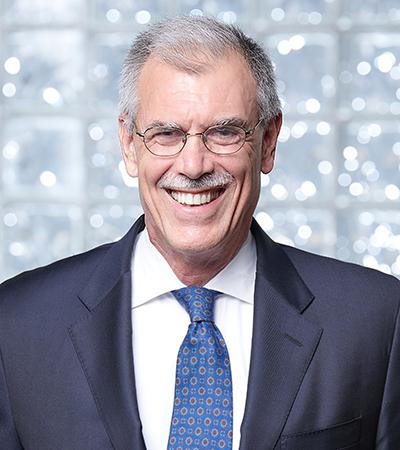
Former Solicitor General of the United States to deliver Lane Lecture
25 Sep 2018
Donald B. Verrilli, Jr., former United States Solicitor General, will deliver the College of Law’s Lane Lecture at noon on Sept. 21.
Verrilli, now a partner at Munger, Tolles & Olson, and the founder of its Washington, D.C., office, will discuss “The Rule of Law: Not Just a Law of Rules.”
The talk, which is free and open to the public, is at the College of Law. Verilli will offer his perspectives on the rule of law, the Constitution, and contemporary events in American society.
Due in large part to the influence of Justice Scalia, conservative judges, academics and practicing lawyers have expressed their commitment to textualism in statutory construction and originalism in constitutional interpretation as a reflection of a deeper commitment to the rule of law – that is, to the idea that these methods of interpretation ensure that we remain a nation of laws in the sense that judges defer to the democratically legitimate expression of the law by the people and their representatives, rather than substituting their own moral or policy judgments. For all of its force and the positive disciplining effects this set of ideas has had on the way we approach legal texts, the centrality of the “rule of law as a law of rules” idea in conservative jurisprudence has produced at least two serious unfortunate consequences. First, it tends to promote divisiveness in the legal culture because it defines other interpretive methods, and the outcomes they produce, as illegitimate, and not merely the product of good faith disagreement. Second, and more pressingly, it tends to induce myopia. As the present moment illustrates, many adherents are acting in a manner that suggests that they value the confirmation of judges who share their views as a higher value than protection of the integrity of the legal institutions and the overall constitutional structure, without which their interpretive commitments ultimately will mean very little.
Verrilli is widely recognized as one of the nation’s premier Supreme Court and appellate lawyers. He served as Solicitor General from 2011-2016 and argued dozens of cases before the U.S. Supreme Court. His landmark victories include, among many others, his successful advocacy in defense of the Affordable Care Act in NFIB v. Sebelius and King v. Burwell; his successful advocacy for marriage equality in Obergefell v. Hodges and United States v. Windsor; and his vindication of federal immigration authority in Arizona v. United States.
The Nebraska Law Review has published “The Rule of Law: Not Just a Law of Rules,” Verrilli's cooresponding article.
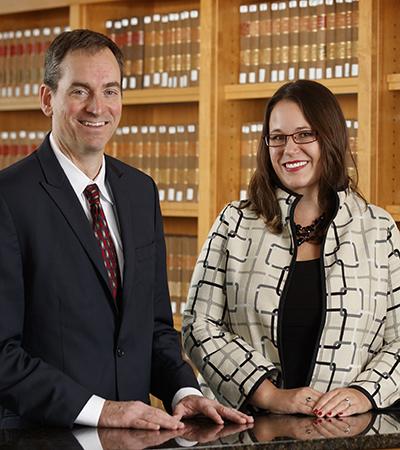
University of Nebraska to Create Space Law Network
24 Sep 2018
The University of Nebraska has received a $250,000 NASA Space Law pilot-program grant to create a nationwide network of students, faculty and practitioners interested in space law and policy.
“NASA understands workforce development is crucial to the United States’ prosperity in space. We hope to foster a great pool of attorneys to pull their legal workforce from,” said Elsbeth Magilton, executive director of the Space, Cyber and Telecommunications Law program in the University of Nebraska College of Law. “The key objective of the Space Law Network is to implement a system to support, educate and provide opportunities to law students across the country interested in space law and policy.”
The project is facilitated by the NASA Nebraska Space Grant office at the University of Nebraska at Omaha, led by Scott Tarry, director; and Michaela Lucas, associate director. It will be implemented by Nebraska’s space law program, led by Matt Schaefer, co-director and program faculty; and Magilton.
“This grant allows the Space Law Network to fund legal internships at NASA, as well as bring students from all over the U.S. to numerous national conferences, where they’ll hear from leading scholars,” Schaefer said. “This April, Nebraska Law will host a student and new scholar space law workshop, focused on research, writing and publication, while also giving students the opportunity to build career-development plans targeting careers in space.”
The Space, Cyber and Telecommunications Law program and the Nebraska Space Grant are uniquely situated to create the Space Law Network, which will strengthen, enhance and diversify connections between U.S. law schools and space law experts. Over the past 10 years, Nebraska’s space law program has trained attorneys who serve in the military, including U.S. Air Force Space Command; civil government, including the U.S. State Department; and commercial space law positions, including SpaceX and Firefly Aerospace. The program hosts one of the largest annual conferences in space law each year in Washington, D.C., and is guided by a world-class advisory board.
Schaefer and Magilton are prominent figures in space law education. Schaefer is co-chair of the American branch of the International Law Association’s Space Law Committee and a member of the International Law Association’s Space Law Committee. His writings have influenced congressional commercial space legislation the past three years, and he is the principal organizer of the D.C. space law conference. Magilton is vice chair of the American Society of International Law’s Space Law Interest Group. She was recently nominated for the Women in Aerospace Awareness Award for her work at the university, including increasing the number of Judge Advocate Generals from military services benefitting from space law-specific education; and organizing the annual Operational Law conferences at U.S. Strategic Command, focused in part on space operations.
The Space, Cyber and Telecommunications Law faculty also includes Frans von der Dunk, author of the leading handbook in the field and adviser to foreign governments on commercial space legislation; Jack Beard, a leading figure in the Woomera Manual on the international law of military operations in space; Matt Novak, designer and teacher of a groundbreaking course in space law research; and co-director Gus Hurwitz, a leading cyber, cybersecurity and spectrum scholar.
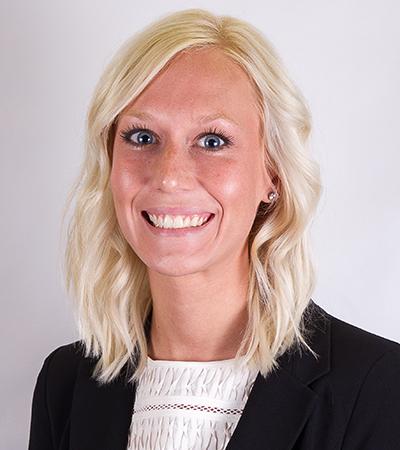
Carroll-Altman, '18, Joins Berry Law
12 Sep 2018
Hannah Carroll-Altman, '18, recently passed the Nebraska Bar and will be joining Berry Law Firm as its newest criminal defense attorney. Hannah brings a wide variety of legal experience to the Berry Law team. Hannah has argued in front of the Nebraska Court of Appeals and second-chaired the defense for sexual assault jury trial, which resulted in an acquittal.
Hannah is originally from Kearney, Nebraska. She received her B.S. in Criminology, with a minor in Spanish, from the University of Nebraska – Omaha in 2014. She received her J.D. from the University of Nebraska – College of Law in 2018. While at Nebraska Law, Hannah was the recipient of the prestigious CALI Excellence for the Future Award in both Trial Advocacy and Advanced Trial Advocacy. The CALI Award is given to the highest scoring student in each law school class. Hannah is also the author of a “Self-Help Guide” for inmates to pursue declaratory relief claims for miscalculations of their ‘good time’ served.
During her time in law school, Hannah worked as a Senior Certified Law Clerk at the Nebraska Commission on Public Advocacy, a government organization which provides legal representation to indigent defendants charged with first degree murder and serious violent and drug-related felonies. In law school, she also worked for two years as a Senior Certified Law Clerk for Anderson, Creager, Wittstruck, P.C., L.L.O., a full-practice law firm in Lincoln. In this position, Hannah worked mainly in the areas of state and federal criminal defense.
Also, during law school, Hannah participated in Nebraska Law’s Criminal Clinic, in which she prosecuted misdemeanors for the Lancaster County Attorney’s Office. Through the Clinic, she successfully prosecuted a bench trial and won a sizeable restitution award for the victim.
Hannah was the President of the Student Chapter of the Nebraska Defense Counsel Association for two years in law school. She also is currently a member of several distinguished associations, including the Nebraska Criminal Defense Attorney’s Association, the Phi Alpha Delta Law Fraternity, the Nebraska State Bar Association, and the American Bar Association.
At Berry Law Firm, Hannah will focus her legal practice on criminal defense, specializing in sexual assaults and sex crimes, Title IX investigations, interstate drug stops and drug crimes, and DUI/DWI defense.
When she is not focusing on her legal career, Hannah enjoys traveling and scuba diving. She has over 60 logged dives and is a Certified Rescue Diver and a Certified Night Diver.
Berry Law Firm is happy to add Hannah to the team!
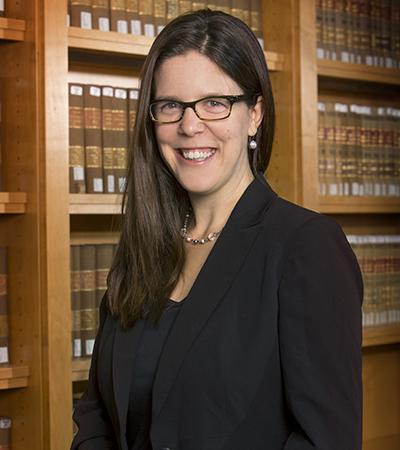
Shoemaker's Article Accepted by California Law Review
10 Sep 2018
Professor Jessica Shoemaker's article, Transforming Property: Reclaiming a Modern Indigenous Land Tenure, has been accepted by the California Law Review. The California Law Review is committed to publishing the most “innovative and insightful legal scholarship.”
In Transforming Property, Shoemaker builds on her prior work on the unique and complex challenges of modern reservation property systems and, for the first time in the literature, opens a new pathway to reclaim tribally driven property regimes within reservation boundaries. This article makes unique contributions to property theory, provides a robust analysis of property system dynamics, and powerfully situates this entire property project in the broader context of indigenous rights.
The research and writing of this article was supported by both a McCollum grant and the Rural Futures Institute at the University of Nebraska.
The abstract is below:
This Article challenges existing narratives about the future of American Indian land tenure. The current highly-federalized system for reservation trust property is deeply problematic. It is expensive, bureaucratic, oppressive, and directly linked to persistent poverty in many reservation communities. Yet, for complex reasons, this trust property has proven largely immune from fundamental reform. Today, there seem to be two primary options floated for the future: a “do the best with what we have” approach that largely accepts core problems with the existing trust, perhaps with some minor tinkering focused on efficiency, for the sake of the benefits and security it does provide, or a return to old, already-failed reform strategies focused on simply “liberating” American Indian people with a forced transition to state-based fee-simple property. Both strategies respond, sometimes implicitly, to deep impulses about how property should work, especially in a market economy, but both also neglect sufficient respect for the true potential of more autonomous tribal property regimes.
This Article engages property theory and related work on adaptation and change in complex systems, including property, to make the case for more radical institutional land reform as a realistic alternative choice, even in the complex and multi-layered environment of existing reservations. Property systems are full of dynamic, pluralistic potential, and property powerfully shapes the contours of both human communities and physical landscapes. This Article unearths this existing potential and charts a series of alternative steps, driven primarily by respect for tribal governments’ own actions and choices, to reclaim new, modern versions of indigenous land tenure within reservation spaces.
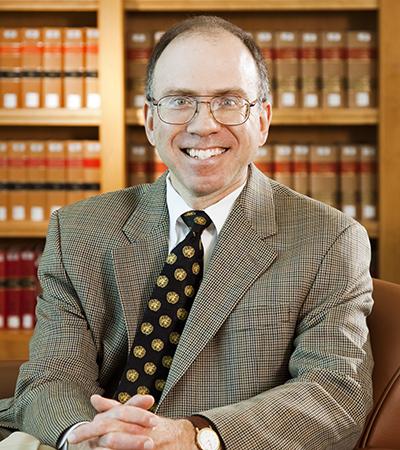
Lepard Teaches Course at Brazilian Law School on “Hot Topics in International Law”
05 Sep 2018
In July and August of this year Professor Brian Lepard taught a one-week course entitled “Hot Topics in International Law” at the Universidade Federal do Rio Grande do Sul (“UFRGS”) in Porto Alegre, Brazil. About 30 students participated in the course. Professor Lepard is the Harold W. Conroy Distinguished Professor of Law at the University of Nebraska College of Law and a recognized expert on international and comparative law.
Topics discussed in the course included the regulation of war and the pursuit of peace; the legality of the threat or use of nuclear weapons; the legality of the threat or use of chemical weapons; the protection of civilians in armed conflict; the prosecution of war criminals by international criminal tribunals; the responsibility to protect victims of mass atrocities; the protection of the human rights of minorities; the protection of the rights of refugees and asylum-seekers; the legality of hate speech; the prevention of global warming and the protection of the environment; the legal implications of tariffs and trade wars in the global economic system; and growing skepticism about international organizations.
Here is a photo of the students proudly holding their course certificates, along with Professor Lepard and Professor Claudia Lima Marques of UFRGS, who helped organize the course:

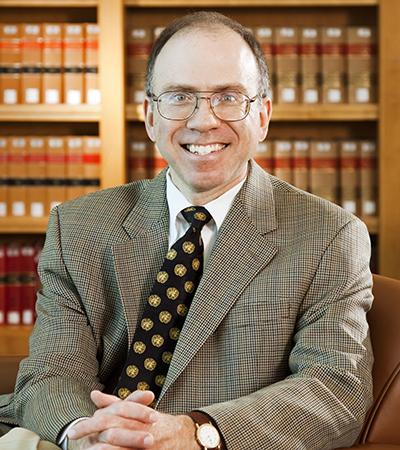
Lepard Interviewed about the 2017 U.S. Tax Cut and Jobs Act and Its Implications for Brazil
24 Aug 2018
Zero Hora, one of Brazil’s largest circulation national newspapers, published an interview in its August 6, 2018 edition with Professor Brian Lepard. (A reproduction of the page containing the interview can be found here. An online version is available here.) Professor Lepard is the Harold W. Conroy Distinguished Professor of Law at the University of Nebraska College of Law and a recognized expert on tax law, including international tax law.
The interview concerned the Tax Cut and Jobs Act adopted by Congress and signed into law by President Trump in December 2017. The interview was conducted by Zero Hora economics columnist Marta Sfredo with Professor Lepard while he was in Porto Alegre, Brazil. Professor Lepard gave a major talk, sponsored by the Instituto de Estudos Tributários (Institute for Tax Studies), on the tax law and its implications for Brazilians and Brazilian companies. He also taught a one-week course entitled “Hot Topics in International Law” at the Universidade Federal do Rio Grande do Sul (“UFRGS”). Furthermore, he was a guest speaker in a course at the Pontifícia Universidade Católica do Rio Grande do Sul (“PUCRS”) on freedom of expression and the regulation of hate speech under international law.

The published version of the interview was captioned, “Capital Responses – Brian Lepard, Professor of the University of Nebraska.” Here is an English translation of the interview:
“The Base of Taxation is Income”
The American tax expert Brian Lepard, professor at the University of Nebraska, in the United States, was in Porto Alegre for the inaugural class of a course sponsored by the Institute for Tax Studies. In good Portuguese, using English only to avoid ambiguities, he offered an interview for this column reinforcing critiques of Donald Trump’s tax reform and the Brazilian system. He recounted that he learned the Portuguese language in a three-month course, motivated by cooperation agreements that the University has with UFRGS and PUCRS.
Question: It is said that the tax reform can stimulate the American economy, which is already strong, even more. Going forward, can this cause a whiplash effect?
Response: Yes, there is a perception that it is not necessary to have a tax stimulus in the economy at this moment. There are doubts about whether it was necessary. The effects can be diminished because the economy is growing. Normally, there are stimuli during periods of crisis or slow growth.
Question: Would there be better effects in a slower economy?
Response: We have other examples, not only from the tax system but involving the direct injection of money by the U.S. Government and the lowering of interest rates. These types of intervention are more effective in periods of recession or slow growth. But there is the perspective that lower rates for corporations are good in the long term. Before, the U.S. had corporate tax rates of up to 35%, which were higher than in most of the rest of the world and were a disincentive to investment. Businesses went to other countries. One purpose of the new law was to eliminate that problem.
Question: What are some other points concerning the new law?
Response: Another question regarding the law is why it reduces the rate applicable to corporations and not as much the rate applicable to individuals. The law reduces the rate for individuals, but not by much. Before the new law, the highest rate was 39.6% for the wealthiest, which fell to 37%. In the tax reform act adopted under the Ronald Reagan Administration, in 1986, the rates applicable to individuals were reduced much more, from almost 50% to 28%. So in this new law the reduction was much smaller. Congress also hoped that corporations would use the tax reduction to make investments, create jobs, and pay more to their employees. The effects have been more muted in these areas. Some corporations have announced they are paying a little more to their employees, but many are using the tax savings to buy back their own shares on the stock market. If the price is considered low, the corporation can benefit by buying back its own shares because in the future it can sell them for a higher price.
Question: Would the appropriate reaction of Brazil to the American reform be simplification?
Response: Yes, simplification. This was one of the purposes of the 1986 tax reform act. In Brazil, there are many taxes on consumption -- the purchase of goods and services. I understand that almost 50% of Brazilian government revenues come from taxes on consumption of some kind. By contrast, only 20% of revenues come from taxes on income. In the U.S., the situation is almost reversed. Taxing income is better from the point of view of equity. The richest earn more and therefore pay more, leading to a progressive system. Taxes on consumption represent a smaller proportion of the income of the rich than they do of the poor. [In an income tax] the base of taxation is income. I understand that dividends are not taxed in Brazil. Usually they are received by wealthier taxpayers. Therefore it is also necessary to modify the definition of taxable income and increase the types of income that are taxable to make the system more equitable.
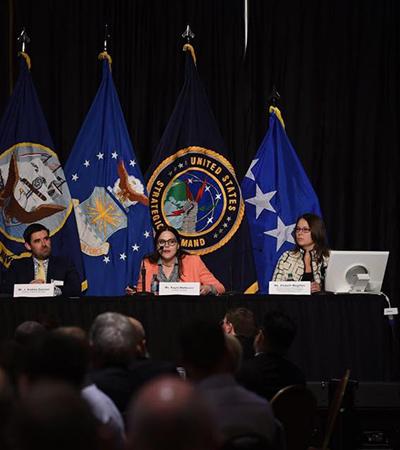
Magilton Moderates Panel at USSTRATCOM Deterrence Symposium
20 Aug 2018
On August 2nd, Space, Cyber, and Telecommunications Law Program Executive Director Elsbeth Magilton represented the Deterrence and Assurance Academic Alliance (DAAA) at the Annual U.S. Strategic Command (USSTRATCOM) Deterrence Symposium in front of 750 people, including the USSTRATCOM Commander General Hyten and multiple generals from the US military and those of our allies, featuring impressive student research the Alliance selected to highlight at this larger conference.
Last year the College of Law joined with the University’s Political Science department to co-host the annual Deterrence and Assurance Academic Alliance spring conference this March. The USSTRATCOM DAAA harnesses the work of academics and researchers, asking them to collaborate with both one another and with individuals inside USSTRATCOM to think about deterrence in new and challenging ways. The DAAA is an alliance made up of over 40 academic institutions focusing on the modern complexities of assurance and deterrence.
In introducing her panel of student authors, Magilton said “This year my conference co-planner Professor Tyler White and I wanted to push the boundaries of traditional approaches and simultaneously indulge in a pun, calling our event, “Thinking Outside the Silo: Creative Problem Solving in Deterrence and Assurance." Our goal was simple. To challenge conventional wisdom to address the changing landscape of security threats and war fighting domains. Presentations featured outside the box thinking and used new and innovative methodologies to reassess old problems and address new ones in deterring adversaries and assuring our allies. Over two days, students and faculty presented, debated, and pushed one another to higher levels. The conference featured a student-centric table top exercise and challenged our interdisciplinary group to strategize and think in ways they hadn’t before. In summary, I know my institution and our students greatly benefit from our participation in the Alliance and I am hopeful that our work contributes to their men and women who work at STRATCOM every day.”
The highlighted papers covered a range of topics, from cyber threats facing NC3 to explaining conflicts that fall short of war, from analyzing how urban geography shapes nuclear strategy to mining the rhetoric of North Korea. In Magilton’s words, “Their work represents what the Alliance does best: engage a new generation of deterrence thinkers and push the boundaries of traditional thinking.”
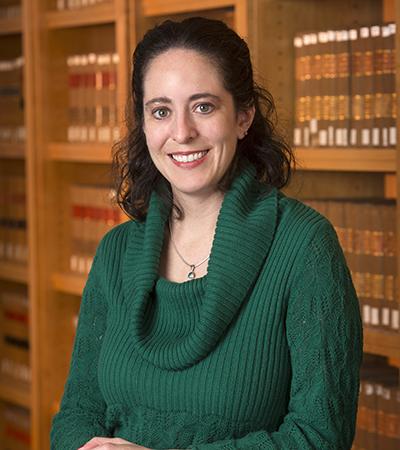
Blankley Named Recipient of the Binning Award for Excellence
17 Aug 2018
Professor Kristen Blankley is the recipient of this year’s Binning Award. Her research productivity was particularly impressive this year. She was the lead author on a new book in the "Understanding…" series, Understanding Alternative Dispute Resolution, published by Carolina Academic Press, and she also wrote a book chapter for another book, Mediation Ethics in ADR in Employment Law. Her co-authored case book, Arbitration: Law, Policy, and Practice, for which she wrote four chapters, was also published this summer. Moreover, she published a law review article, Agreeing to Collaborate in Advance, in Ohio State Journal of Dispute Resolution. Professor Blankley is clearly the go-to ADR scholar in Nebraska and she is burnishing her national reputation as well.
On top of this scholarship, Blankley teaches significant credit-hours, and she willingly takes on new assignments. She supervises a tremendous number of externships and also coaches the College’s mediation team, which provides a fantastic experience for students.
Professor Blankley is incredibly dedicated to the College of Law, the University and our community. She chairs the Curriculum Committee, which examined a number of important issues this past year, and worked on the ABA Accreditation Committee. She is the Director of the Robert J. Kutak Center for the Teaching and Study of Applied Ethics and this year helped the Center revamp its website and better publicize its work. Finally, Kristen has demonstrated local and national leadership through her extensive work on a variety of University and ABA committees as well as by serving as a board member for The Mediation Center.
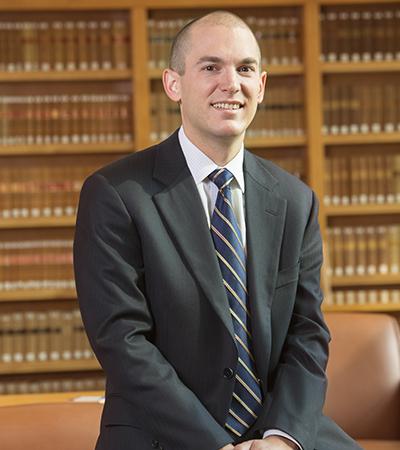
Thimmesch Named Recipient of the Bunger Memorial Award for Excellence
16 Aug 2018
Professor Adam Thimmesch has been named the 2017-2018 recipient of the Ray H. Bunger Memorial Award for Excellence.
Of particular note this year, Professor Thimmesch published two essays in online law reviews, two substantive pieces in State Tax Notes, ten blog posts on the SurlySubGroup blog, and co-wrote another piece that is in the process of being published by State Tax Notes. He also spent a significant amount of time revising and working on his article, Tax Privacy?, which was recently published in the Temple Law Review. His work also has had an impact; it was cited in amicus briefs before the Supreme Court for the South Dakota v. Wayfair case, an issue on which Professor Thimmesch has become a national thought leader.
Professor Thimmesch continues to have great success in the classroom. He began teaching a new course, Corporate Tax, and also taught an independent study and supervised an externship. He received the Upper-class Professor of the Year award, which has become an almost annual tradition. This was his third time winning the award in the last six years.
Professor Thimmesch also provided tremendous service this year to the College. He worked on the Yeutter Chair search, continued his work with the Great Plains Federal Tax Institute, managed the John Gradwohl Business and Estate Planning Seminar, and took on a new responsibility directing the Law+Business Initiative. He also consulted with state senators on several bills before the Unicameral.
The Ray H. Bunger Memorial Award for Excellence is an annual award chosen by the Dean on the basis of demonstrated excellence in teaching, research, academic promise, and achievement related to the fulfillment of the research and teaching mission of the University of Nebraska College of Law. The donor for this award gave this gift to commemorate the life of the donor’s father, Ray H. Bunger, who was a lifelong devoted supporter of the University of Nebraska. He sent his three sons to the University of Nebraska for varying periods and several of his grandchildren also received education at the University. He firmly believed that “a good education is something that can never be taken away from you.” He was President of the Franklin County School District #44 and Secretary of the Board of Upland COOP Credit Association.

Henderson, '78, Named A "Lawyer of the Year"
16 Aug 2018
Robert Henderson, ’78, was named as one of the “Lawyers of the Year” on The Best Lawyers in America 2019 list. Henderson earned the designation for the second consecutive year and the third time in his career.
Only one lawyer in each practice area of the Best Lawyers communities is selected for the honor as “Lawyer of the Year”.
Henderson is a shareholder at Polsinelli’s Kansas City office where is he practices personal injury litigation – defendants.
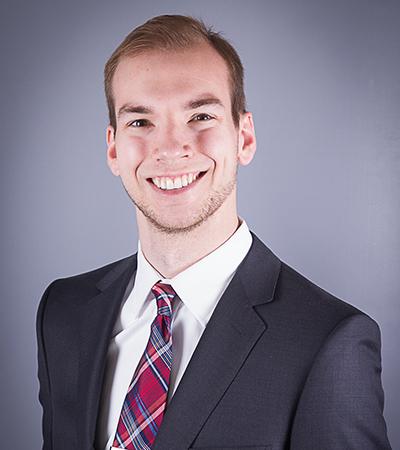
Moran, ’18, Wins National Employee Benefits Writing Competition
01 Aug 2018
Gregory Moran, ’18, won the 2018 Sidney M. Perlstadt Memorial Award in the American College of Employee Benefits Counsel’s Fourteenth Annual Employee Benefits Writing Competition. Moran’s winning submission was entitled “Breaches Within Breaches – The Crossroads of ERISA Fiduciary Responsibilities and Data Security.” He will receive the award at the College's annual black tie induction dinner on Saturday, September 15, 2018 in Nashville, Tenn.
Moran is the third Nebraska Law student to receive this award. Alexander Engelkamp won the writing competition in 2017, and Brian Fahey won the writing competition in 2015.
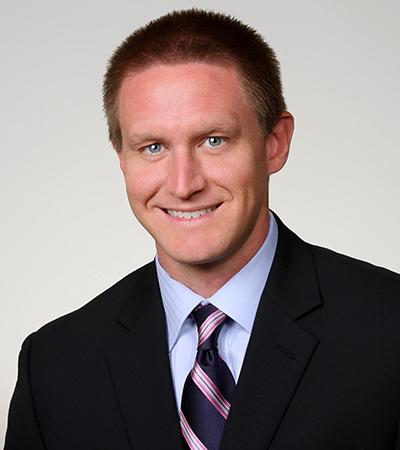
Maddox, '01, Named a Top Labor & Employment Lawyer by Daily Journal
24 Jul 2018
Liebert Cassidy Whitmore partner, Jesse Maddox, '01, has been named a 2018 California “Top Labor & Employment Lawyer” by the Daily Journal. This is the seventh year that one of Liebert Cassidy Whitmore's attorneys has been selected to this list, which is released annually and recognizes the 75 California attorneys who are the “top in the field.”
Jesse was selected for his focus on defending employers throughout California in all aspects of labor and employment litigation. Most recently, Jesse won a unanimous jury verdict in favor of the City of Stockton in a pregnancy/gender discrimination and whistleblower retaliation case in the United States District Court for the Eastern District of California - Sacramento Division.
This was selected as a “Top Verdict” of 2017 by the Daily Journal as well as “Case of the Month” in the May edition of Trial’s Digest - the Fresno County Bar Bulletin. The victory was obtained using a strategy that highlighted the bias of the plaintiff, specifically comments she made about her boss and his Mormon faith.
“By preparing witnesses and making them as identifiable as possible, you make it more personal so the jury understands there are real people involved, making the best decisions they can using their judgment,” said Jesse. “It’s not just some greedy corporation or governmental entity.”
Jesse is a Partner in our Fresno and Sacramento offices and has litigated over 50 employment law actions in federal and state courts through all stages of litigation, including jury trials, bench trials, and appeals. He serves on the Executive Committees of the Firm's Litigation and Public Safety Practice Groups. Jesse is also a member of the Fresno County Bar Association, the Federal Bar Association, and the American Bar Association.
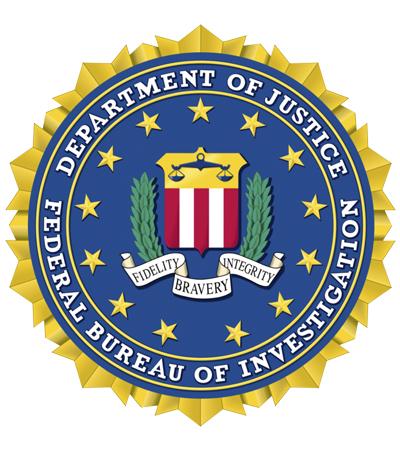
Langenberg, '93, Named Special Agent in Charge of the Albuquerque Field Office
12 Jul 2018
FBI Director Christopher Wray has named James C. Langenberg, '93, as special agent in charge of the Albuquerque Field Office. Mr. Langenberg most recently served as the chief of the External Audits and Compliance Section in the Inspection Division at FBI Headquarters (FBIHQ).
Mr. Langenberg entered on duty with the FBI in 1996, and was first assigned to the Albuquerque Field Office, where he investigated white collar crime, counterintelligence, and violent crime and major offender matters. He was a member of the Albuquerque SWAT team, a certified sniper, and served as the Associate Division Counsel.
In 2001, Mr. Langenberg was promoted to supervisory special agent in the Office of Public and Congressional Affairs, FBIHQ, where he served as the FBI’s liaison to the Senate Select Committee on Intelligence, the House Permanent Select Committee on Intelligence, and the Senate Judiciary Committee. In 2002, Mr. Langenberg transferred to the Counterintelligence Division, FBIHQ, and became a charter member of the new Counterespionage Section.
In 2003, Mr. Langenberg transferred to the Omaha Field Office as a supervisory special agent for the counterintelligence program. In 2008, Mr. Langenberg was promoted to assistant special agent in charge of the Omaha Field Office, where he was responsible for the office’s National Security Branch.
Mr. Langenberg received his bachelor’s degree in political science from the University of Nebraska, and a Juris Doctorate from the University of Nebraska College of Law. Prior to joining the FBI, Mr. Langenberg was employed in the Revisor of Statutes Office at the Nebraska State Capitol.